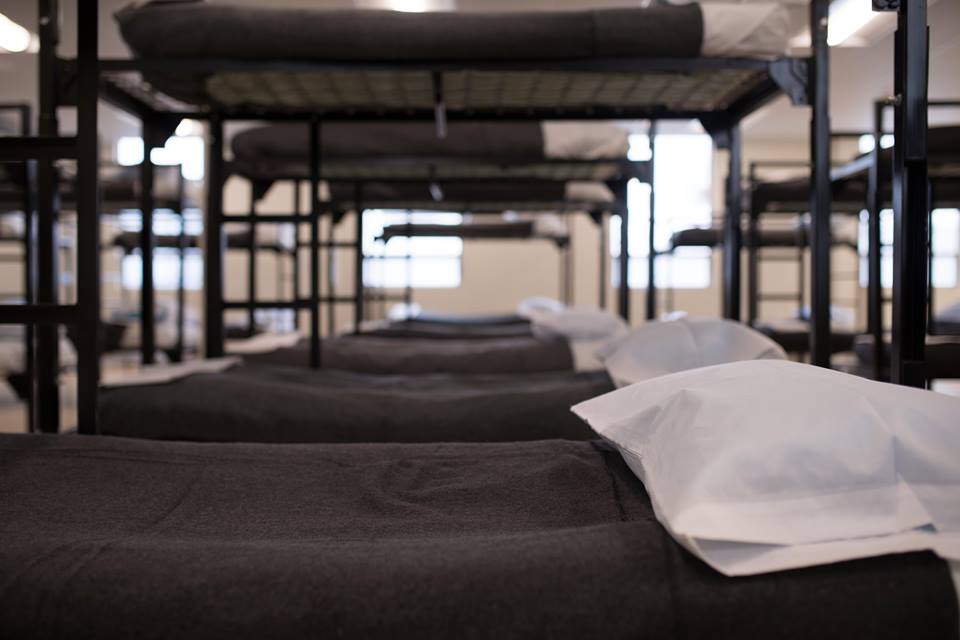Photo: Zengzheng Wang Wang
Boston has one of the lowest urban street homelessness rates in the country, thanks to its strong web of homeless shelters and other resources. In fact, the total number of homeless individuals in Boston has declined by 14.5 percent since 2007. However, the city isn’t stopping there. Boston’s plan to end veteran and chronic homelessness has been relaunched as “Boston’s Way Home” and is now turning its full attention to housing the chronically homeless.
Mayor Martin J. Walsh announced on July 21 that the city is well on its way to ending chronic homelessness—those who have been homeless for a year or more or have had at least four episodes of homelessness in the past three years—by 2018. In fact, in January Walsh announced that Boston has succeeded in ending chronic homelessness among veterans, having housed more than 650 homeless veterans in only six months. In his state of the city address on July 19, Mayor Walsh told a touching story about Donald Wilkins, an air force veteran who was housed through Boston’s Homes for the Brave, a branch of the Boston’s Way Home plan.
“Donald told me how the stigma of homelessness chipped away at his pride,” Mayor Walsh said. “He said our new system—and his new apartment in West Roxbury—was the key to a new life. Donald is with us tonight. It’s because of his courage and the courage of countless veterans like him that I am so proud to announce: we have ended chronic veterans’ homelessness in Boston. And we are working every day to end all chronic homelessness by the year 2018.”
This plan is ambitious, but huge steps have already been taken. Since January of this year, Boston’s Way Home has housed 101 chronically homeless individuals and has identified every chronically homeless individual in the city of Boston. With 497 chronically homeless individuals left, the city is helping each of them find housing.
Executive director of the St. Francis House in Boston, Karen LaFrazia, said that she has seen a big improvement in getting people housed.
“What’s happening is improvement at the leadership level,” said LaFrazia. “Beginning with the mayor and his very strong emphasis on ensuring people get housed, that message has trickled down like a lightning bolt. It’s what we all wanted for so long. The lessons we’ve learned in getting veterans housed is getting applied to the chronically homeless.”
Other facets of the plan include the Rapid Rehousing program, which helps people by housing them quickly to prevent them from becoming chronically homeless. Boston’s Way Home has partnered with the Boston Housing Authority and has opened the Francis Grady Apartments and the Stacy Kirkpatrick House to create more opportunities for permanent supportive housing. Also, it has held five “Housing Surges,” gatherings where government and nonprofit agencies meet with the homeless to help them get housed and to receive other services such as health insurance upgrades and veteran benefits.
“This new, coordinated approach is working because it focuses on connecting chronically homeless individuals with the services that address their specific case, thereby helping them find a permanent solution,” said Sheila Dillon, Boston’s chief of housing and director of neighborhood development, in a statement. “Boston is incredibly lucky to have a strong network of providers of service to our homeless, and they have done incredible work over many years,” she added.
Boston’s Way Home is also working to help people it cannot house. It has opened a new shelter at 112 Southampton St. and has redesigned Woods Mullen shelter. It is also working on improving front door triage, the immediate response to homeless individuals, which better attends to individual needs. In August, it will roll out a centralized IT system that will better connect all of the scattered homelessness services and give people more of the services they need.
“Absolutely, there has been a marked increase in coordination across the providers in the city,” said LaFrazia. “A real emphasis on moving people into permanent housing. It’s very different than a year or two ago.”
Boston’s Way Home has received a total of $425,000 in private endowments and grants, $900,000 in state housing vouchers and $1.05 million in new city funding.
“Helping our homeless has always been a deeply personal issue for me, and I am proud of the work we have done with our partners to improve the way we deliver services to our homeless population,” said Mayor Walsh in a statement. “Boston’s Way Home reflects our focus on permanent supportive housing and how we will meet our goal of ending chronic homelessness by 2018.”

Leave a Reply
You must be logged in to post a comment.